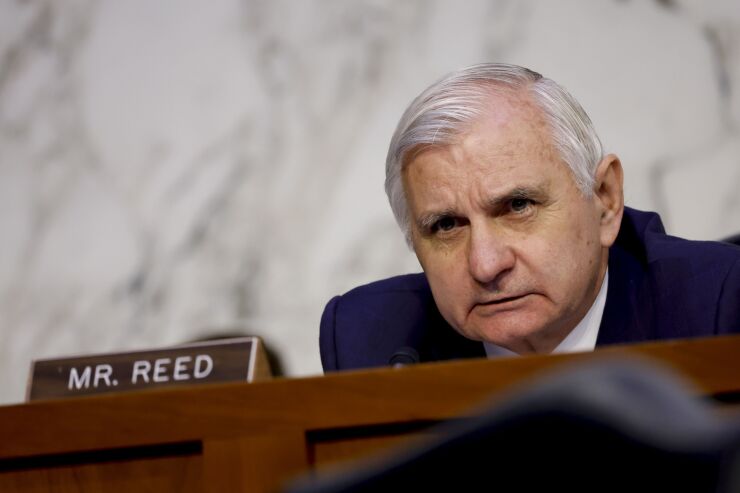Sen. Jack Reed, D-R.I., has asked the heads of the country's largest banks why they pay relatively low rates on consumers' deposits despite charging borrowers higher interest on loans.
As the Federal Reserve
"Higher interest rates, which are set by the Federal Reserve to help fight inflation, can raise costs for borrowers, but should also mean higher yields for savers," Reed's office said. "This is due to the fact that savings accounts at a bank effectively allow the bank to borrow the depositor's money, for which the institution pays the customer some form of interest in return."
In the letters, Reed, the No. 2 Democrat on the Senate Banking Committee, notes that there's a disparity between "average" customers and banks' wealthier clients, who have locked in higher yields.
"While average consumers have seen virtually no increase in deposit rates, your bank offers higher-yielding longer-term deposit products to well-off customers who can afford to lock up tens or hundreds of thousands of dollars for more than a year," Reed said in the letters. "But these deposit products are out of reach for many Americans who cannot afford them, and they are no substitute for savings accounts that give customers access to their money on demand to pay for rent or utilities."
Reed questioned bank CEOs about the difference between the rates banks charge and those they pay out to retail customers in the
Wells Fargo CEO Charles Scharf said at the time that the bank was "beginning to raise rates."
"We have products that have a range of alternatives, I think, up to a peak of 1.5% as of the other day," Scharf said. "And as rates continue to rise, we would expect to continue to increase the rates that we pay our customers."
Reed said that since Scharf gave that answer, interest on savings accounts for Wells Fargo customers has "barely budged."
The lawmaker, in the letters, requested answers by Nov. 15 as to why banks pay low rates on deposits and charge borrowers high interest rates.







